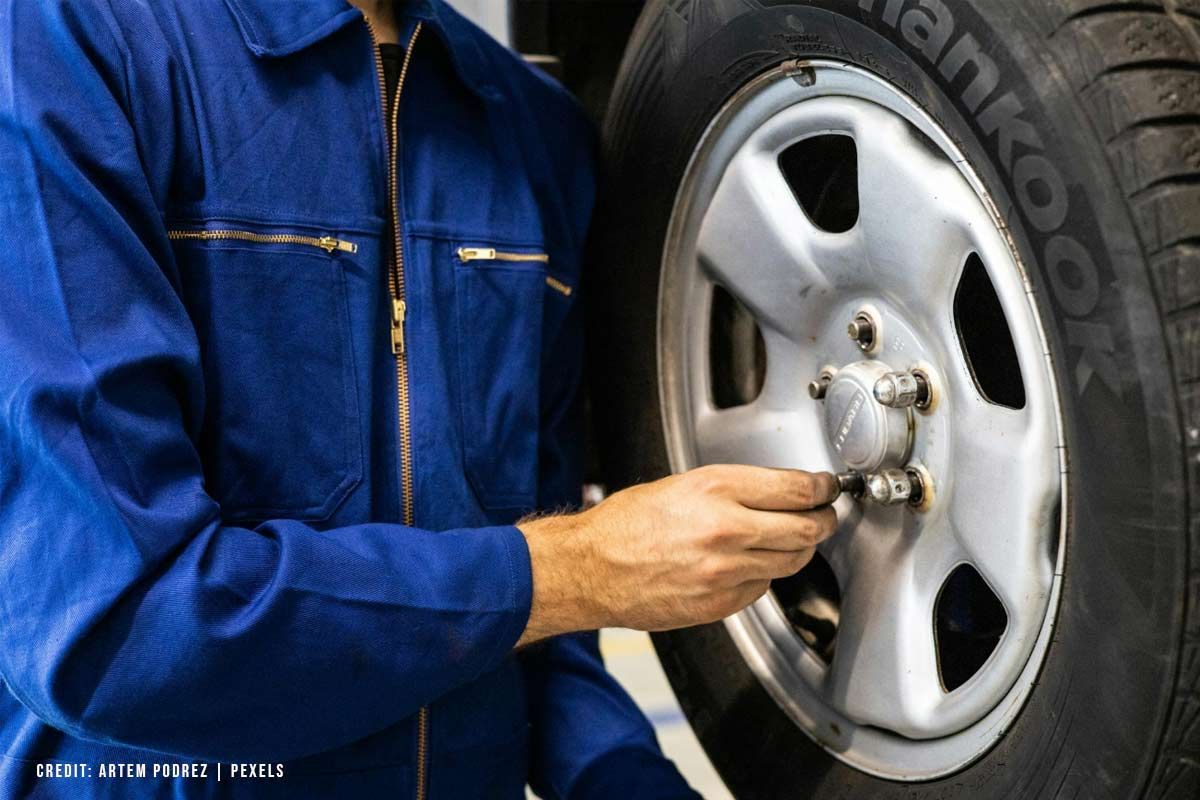You know that sinking feeling…
A strange noise from under the hood.
A dashboard light that won’t go off.
Or the car simply refusing to start.
Vehicle trouble is an unwelcome and often expensive surprise that can disrupt your life and strain your budget. For many, a sudden repair bill of several hundred or even a few thousand dollars isn't something they have tucked away in savings.
Fortunately, you have options.
When a critical repair is needed to keep you on the road, a small, manageable loan can be the perfect solution. It allows you to address the problem immediately, ensuring your safety and mobility without derailing your finances.
Let’s explore seven common car repairs that a small loan can comfortably cover.
1. Brake Pad and Rotor Replacement
Your car’s braking system is arguably its most important safety feature. Over time, the brake pads wear thin, and the rotors they press against can become warped or scored.
- Signs of trouble: A high-pitched squealing when you brake is the first warning. If you let it go, it will turn into a loud, metallic grinding noise, which means you’re causing more expensive damage. You might also feel a vibration or pulsation in the brake pedal.
- Why it’s urgent: Worn brakes significantly increase your stopping distance, putting you and others at risk. Ignoring the problem can lead to complete brake failure.
- Average cost: $300–$800, depending on the vehicle and whether both pads and rotors need replacing. A small loan ensures you don't have to compromise on safety due to cost.
2. Alternator Replacement
The alternator is your car’s electrical powerhouse. It keeps the battery charged and powers everything from your headlights and radio to your power windows and dashboard.
- Signs of trouble: Dimming headlights, a lit-up “ALT” or “GEN” warning light, or a battery that dies repeatedly are classic signs of a failing alternator. You might also hear a whining or growling sound from under the hood.
- Why it’s urgent: When the alternator fails, your car is running solely on battery power, which won’t last long. You’ll eventually be stranded with a dead car that won't restart.
- Average cost: $400–$1,000. This is a significant expense that often comes without warning, making it an ideal candidate for a loan.
3. New Tires
Tires are your vehicle’s only point of contact with the road, making them critical for handling, braking, and overall safety, especially in poor weather conditions.
- Signs of trouble: The most obvious sign is worn tread. You can check this with a tread depth gauge or the classic penny test. Other red flags include visible cracks in the sidewall, bulges, or persistent loss of air pressure.
- Why it’s urgent: Bald tires drastically reduce traction, increasing the risk of hydroplaning on wet roads and losing control. They are also much more susceptible to blowouts.
- Average cost: $500–$1,200 for a set of four, depending on the size and quality. When you need a full set, it’s a major expense. If you need to cover this cost quickly and efficiently, you can
apply for an online loan
and get back on the road safely without delay.
4. Starter Motor Replacement
Just as the name implies, the starter is a small motor that gets the engine turning when you turn the key or press the start button.
- Signs of trouble: The most common symptom is a single, sharp clicking sound when you try to start the car, but the engine doesn’t turn over. In some cases, you may hear a whirring or grinding noise.
- Why it’s urgent: A dead starter means a car that won’t start, period. It can leave you stranded at home, at work, or anywhere in between.
- Average cost: $350–$700. It’s a frustrating and immobilizing problem that needs a quick fix.
5. Battery Replacement
The car battery provides the initial jolt of electricity needed to start the engine and powers your car’s electronics when the engine is off. While less expensive than other repairs, a dead battery can still stop you in your tracks.
- Signs of trouble: The engine cranks slowly when you try to start it, the dashboard lights flicker, or the battery case appears swollen or is leaking. Most car batteries only last 3–5 years.
- Why it’s urgent: A failing battery is unreliable and will eventually leave you unable to start your car, often at the most inconvenient time.
- Average cost: $150–$450. For an immediate and simple financial solution, a
fast payday loan
can cover the cost of a new battery and installation, getting you moving again in no time.
6. Serpentine Belt Replacement
The serpentine belt is a long, winding rubber belt that transfers power from the engine to run vital components like the alternator, power steering pump, water pump, and air conditioner compressor.
- Signs of trouble: A loud, persistent squealing from the engine is the most common symptom. A visual inspection may also reveal cracks, fraying, or missing chunks on the belt.
- Why it’s urgent: If the serpentine belt breaks, you’ll lose power to all these critical systems at once. This can cause the engine to overheat, a loss of power steering, and a dead battery, leading to a breakdown and potentially much more expensive engine damage.
- Average cost: $100–$300. It’s an affordable but crucial piece of preventative maintenance.
7. Oxygen (O2) Sensor Replacement
An oxygen sensor measures the amount of unburned oxygen in your car’s exhaust system. This data helps the engine’s computer adjust the fuel-to-air mixture for maximum efficiency.
- Signs of trouble: The primary indicator is the “Check Engine” light. You may also notice a significant drop in fuel economy or rough idling.
- Why it’s urgent: While a bad O2 sensor won't stop your car from running, it will cause it to run poorly, burn more fuel, and release more pollutants. Ignoring it can lead to damage to your expensive catalytic converter over time.
- Average cost: $200–$600. The process of
borrowing money online
with us is a straightforward way to fund this repair, which can save you money in the long run on fuel costs and prevent more costly emissions system repairs down the line.







